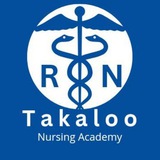✅ What Makes a Meal Kosher?
A kosher meal must:
Contain only kosher ingredients (e.g., permitted animals slaughtered and prepared according to Jewish law).
Keep meat and dairy separate — including during cooking, serving, and even dishwashing.
Avoid forbidden foods, such as:
Pork
Shellfish
Mixing meat and fish in the same dish
Be prepared using kosher utensils in a kosher kitchen, especially for observant individuals.
🧑⚕️ In Nursing Practice:
When caring for Jewish clients:
Always check religious or dietary preferences on admission.
Communicate with dietary services clearly — many hospitals have kosher meal options.
Don’t assume — always verify with the client or family if unsure.
A kosher meal must:
Contain only kosher ingredients (e.g., permitted animals slaughtered and prepared according to Jewish law).
Keep meat and dairy separate — including during cooking, serving, and even dishwashing.
Avoid forbidden foods, such as:
Pork
Shellfish
Mixing meat and fish in the same dish
Be prepared using kosher utensils in a kosher kitchen, especially for observant individuals.
🧑⚕️ In Nursing Practice:
When caring for Jewish clients:
Always check religious or dietary preferences on admission.
Communicate with dietary services clearly — many hospitals have kosher meal options.
Don’t assume — always verify with the client or family if unsure.
❤1
Patient Group Directions (PGDs) are written instructions that allow certain registered healthcare professionals to supply and administer specified medicines to groups of patients without individual prescriptions. They are designed to ensure timely access to medicines while maintaining patient safety and adherence to legal and clinical governance standards.
دستورالعملهای گروه بیماران (PGDs) دستورالعملهای مکتوبی هستند که به برخی از متخصصان مراقبتهای بهداشتی ثبتشده اجازه میدهند تا داروهای مشخصی را برای گروههایی از بیماران بدون نسخه انفرادی تهیه و تجویز کنند. آنها برای اطمینان از دسترسی به موقع به داروها و در عین حال حفظ ایمنی بیمار و رعایت استانداردهای قانونی و بالینی طراحی شده اند.
دستورالعملهای گروه بیماران (PGDs) دستورالعملهای مکتوبی هستند که به برخی از متخصصان مراقبتهای بهداشتی ثبتشده اجازه میدهند تا داروهای مشخصی را برای گروههایی از بیماران بدون نسخه انفرادی تهیه و تجویز کنند. آنها برای اطمینان از دسترسی به موقع به داروها و در عین حال حفظ ایمنی بیمار و رعایت استانداردهای قانونی و بالینی طراحی شده اند.
❤1
Common Symptoms of Chronic Kidney Disease
#CKD
Fatigue and Weakness: A general feeling of tiredness due to the accumulation of waste products in the body.
Swelling (Edema): Swollen ankles, feet, or hands resulting from fluid retention.
Shortness of Breath: Difficulty breathing, which can be caused by fluid buildup in the lungs.
Changes in Urination:
Increased need to urinate, especially at night (nocturia).
Blood in the urine (hematuria).
Sleep Disturbances: Difficulty sleeping or insomnia.
Itchy Skin: Persistent itching due to waste accumulation in the bloodstream.
Muscle Cramps: Cramping, particularly in the legs, due to electrolyte imbalances.
Nausea and Vomiting: Feeling sick, which may be accompanied by vomiting.
Headaches: Frequent headaches that may be related to high blood pressure or toxin buildup.
Erectile Dysfunction: In men, difficulty achieving or maintaining an erection.
#CKD
Fatigue and Weakness: A general feeling of tiredness due to the accumulation of waste products in the body.
Swelling (Edema): Swollen ankles, feet, or hands resulting from fluid retention.
Shortness of Breath: Difficulty breathing, which can be caused by fluid buildup in the lungs.
Changes in Urination:
Increased need to urinate, especially at night (nocturia).
Blood in the urine (hematuria).
Sleep Disturbances: Difficulty sleeping or insomnia.
Itchy Skin: Persistent itching due to waste accumulation in the bloodstream.
Muscle Cramps: Cramping, particularly in the legs, due to electrolyte imbalances.
Nausea and Vomiting: Feeling sick, which may be accompanied by vomiting.
Headaches: Frequent headaches that may be related to high blood pressure or toxin buildup.
Erectile Dysfunction: In men, difficulty achieving or maintaining an erection.
Forwarded from Hassan Takaloo
YouTube
محاسبات دارویی برای پرستار- هپارین، پنتازول، نیتروگلیسیرین، دوپامین، دوبوتامین
سلام دوست عزیز جهت دانلود تمامی آموزش ها عضو کانال اختصاصی در تلگرام شوید
شماره تماس 00989187627842
اینستاگرام
https://www.instagram.com/takaloo_rn
تلگرام
https://t.me/takaloo_rn
موفق باشید
حسن تکلو
شماره تماس 00989187627842
اینستاگرام
https://www.instagram.com/takaloo_rn
تلگرام
https://t.me/takaloo_rn
موفق باشید
حسن تکلو
❤1
Takaloo Nursing Academy
https://youtu.be/kq7C1ECxDbM?si=ofEGot1phLT0Roc6
مناسب امتحان بخش محاسبات دارویی cbt
